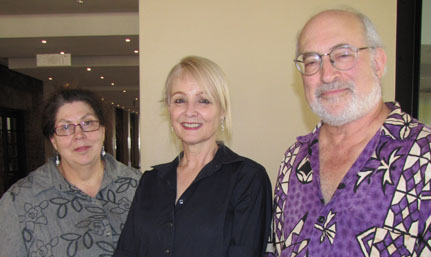Latest News Archive
Please select Category, Year, and then Month to display items
12 October 2020
|
Story Arina Engelbrecht
|
Photo Supplied
 Arina Engelbrecht from Organisational Development and Employee Well-being believes physical activity has a number of benefits for one’s health, including stress relief.
Arina Engelbrecht from Organisational Development and Employee Well-being believes physical activity has a number of benefits for one’s health, including stress relief.
Being physically active plays a big role in preventing the development of mental-health problems and in improving the quality of life of people experiencing mental-health problems.
Treatment for depression
Physical activity can be an alternative treatment for depression. It can be used as a stand-alone treatment or in combination with medication and/or psychological therapy. It promotes all kinds of changes in the brain, including neural growth, reduced inflammation, and new activity patterns are formed that promote feelings of calm and well-being. It releases endorphins – powerful chemicals in the brain that energise your spirit and make you feel good.
Physical activity can be very effective in relieving stress. Research in adults has found that physically active individuals tend to have lower stress levels compared to individuals who are less active. It also leads to improved sleep. When a person sleeps better and feels more rested, overall quality of life improves. They cope better with daily life stressors.
Reduce Alzheimer's risk
Regular physical activity can reduce your risk of developing Alzheimer's disease by up to 50%. It can also slow down further deterioration in those who have already started to develop cognitive problems. It stimulates the brain’s ability to maintain old connections as well as to make new ones.
A study asked people to rate their mood immediately after periods of physical activity (e.g. going for a walk/run, cycling, doing housework) and periods of inactivity (e.g. reading a book or watching television). Researchers found that participants felt more content, more awake, and calmer after being physically active compared to after periods of inactivity.
In conclusion, people who are physically active feel a sense of well-being, feel more energetic throughout the day, sleep better at night, have sharper memories, and feel more relaxed and positive about themselves and their lives.
“Being physically active not only changes your body, it changes your mind,
attitude, and your mood.” – Arina Engelbrecht
Australian academics present research seminar on education
2012-11-14
 |
At the research seminar were, from the left Prof. Marie Brennan, Prof. Melanie Walker and Dr Lew Zipin.
Photo: Amanda Tongha
14 November 2012 |
The Research Centre on Higher Education, Development and Capabilities recently hosted two international visitors, Prof. Marie Brennan and Dr Lew Zipin from Victoria University in Australia. They discussed future visits and research collaboration with Prof. Melanie Walker, Professor of Higher Education and Human Development. They presented a well-attended research seminar on ‘Educating for futures in marginalized regions: a sociological framework for rethinking and researching aspirations’.
Prof. Brennan and Dr Zipin have been involved in researching education for social justice in teacher education and higher education in Australia for many years. Most recently, they have been researchers on prestigious Australian Research Council projects. These include: (i) Capacitating Student Aspirations in Classrooms and Communities in a High Poverty Region, 2012-2014; and (ii) Pursuing equity in high poverty rural schools: improving learning through rich accountabilities, 2010-2012. They recently co-edited Re-positioning University Governance and Academic Work that was published by Sense Publications in 2010.